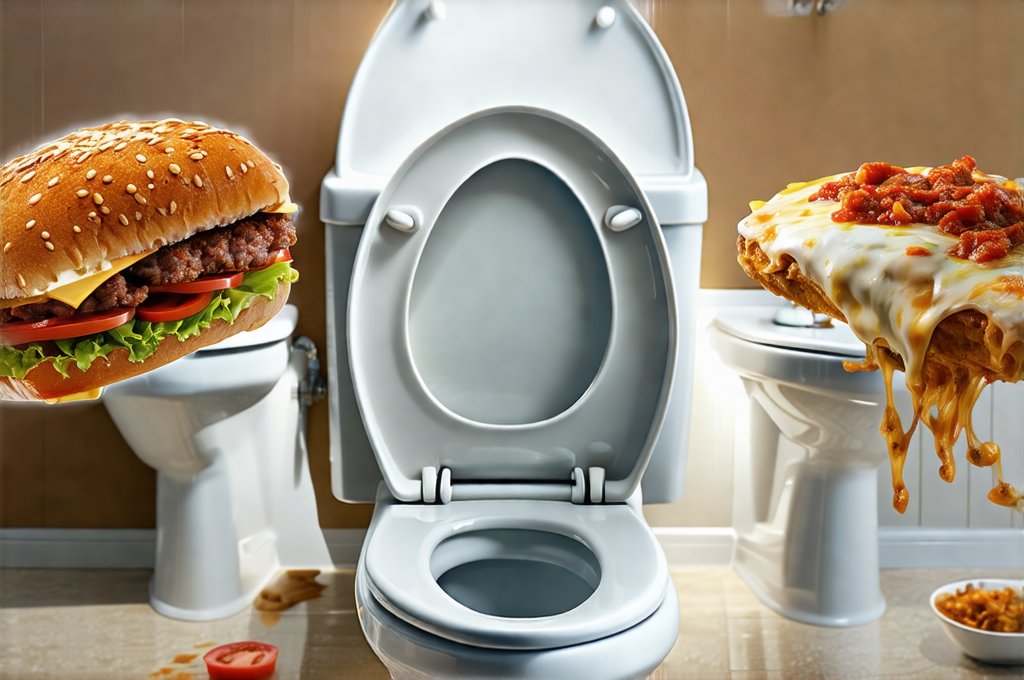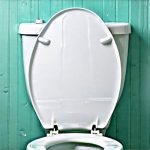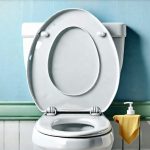The sensation of sudden, overwhelming bathroom urgency after quickly consuming a meal is surprisingly common, yet often dismissed as an oddity. Many individuals experience this – a feeling that barely finishing a plate of food immediately necessitates a dash for the restroom. It’s not usually indicative of a serious medical condition, but understanding why it happens can alleviate anxiety and help manage the discomfort. This phenomenon isn’t simply about how much you eat; it’s intricately linked to the digestive process, gut motility, and even psychological factors related to eating speed. Recognizing the interplay between these elements is crucial for comprehending this often-uncomfortable experience.
This article will delve into the mechanics behind post-meal bathroom urgency, specifically when triggered by rapidly eaten meals. We’ll explore how quickly consuming food impacts digestion, what physiological responses contribute to a perceived ‘need to go’, and offer strategies for mitigating these effects. It’s important to remember that individual experiences vary, and what works for one person might not work for another; however, understanding the underlying principles can empower you to better manage this common issue and make informed choices about your eating habits. We will focus on general explanations and avoid offering specific medical advice – always consult a healthcare professional if you have concerns. It’s also important to consider whether can bloating be caused by other factors, such as blood sugar fluctuations.
The Digestive Cascade & Rapid Eating
The human digestive system is designed for methodical processing. From the moment food enters your mouth, a complex cascade of events begins, involving mechanical breakdown (chewing) and chemical digestion (enzymes). This process ideally unfolds over a period of several hours. When we eat rapidly, however, this natural rhythm is disrupted. Food isn’t adequately chewed, meaning larger particles reach the stomach, requiring more effort for breakdown. More importantly, it overwhelms the digestive system’s capacity to handle influx at a comfortable pace.
This rapid intake triggers a series of physiological responses aimed at accelerating digestion. The gastrocolic reflex – a natural physiological reflex that causes increased motility in the colon when food enters the stomach – is significantly amplified with quick eating. Essentially, your gut senses the arrival of food and starts making room for more by encouraging bowel movements. While this reflex is normal, its intensity is directly proportional to how quickly and how much you eat. A slower, more mindful approach gives the body time to process things gradually, lessening the abrupt stimulation of the colon. It’s important to rule out other causes as well, such as acid reflux.
Furthermore, swallowing large amounts of air while eating rapidly (aerophagia) contributes to bloating and intestinal distension, which can exacerbate the feeling of urgency. This trapped gas creates pressure within the digestive tract, stimulating nerve endings that signal the brain – leading to the perception of needing to eliminate. The combination of a hyperactive gastrocolic reflex, increased intestinal gas, and potentially incomplete initial digestion creates a potent recipe for post-meal bathroom rushes. If you experience throat burning, it could be linked to these digestive issues as well.
Psychological Factors & Gut Connection
The link between our minds and guts is profound; it’s often referred to as the gut-brain axis. Stress, anxiety, and even subconscious behaviors around eating can all play a role in digestive function, including the feeling of urgency. Rapid eating is frequently associated with stress or time constraints – wolfing down food during a busy workday, for example. This pre-existing state of heightened arousal amplifies the physiological responses described above. Your body essentially perceives this as a ‘stressful event’ and prepares accordingly, which can translate to increased gut motility and urgency.
Additionally, eating quickly often bypasses normal satiety signals. We don’t give our brains enough time to register fullness before we’ve already overeaten. This contributes to consuming larger portions than necessary, further overloading the digestive system. The brain then receives conflicting signals – a full stomach and a perceived need for elimination – creating a confusing and uncomfortable experience. It’s also worth noting that ingrained habits play a significant role. If you consistently eat quickly, your body becomes accustomed to this pattern, potentially leading to hypersensitivity in the gut. Understanding lack of stomach acid and its impact could offer additional insight into digestive discomforts.
Finally, psychological associations can develop. If you’ve repeatedly experienced urgency after eating quickly, you might begin to anticipate it, triggering anxiety and further exacerbating the physical symptoms. This creates a self-perpetuating cycle where fear of urgency actually increases its likelihood. There’s also growing research on gut issues and how external factors can affect them.
Slowing Down: Practical Strategies
The most effective way to mitigate bathroom urgency related to rapid eating is, unsurprisingly, to slow down your eating pace. However, this can be easier said than done for those accustomed to quick meals. Here’s a breakdown of practical steps you can take:
- Conscious Chewing: Aim for thoroughly chewing each bite before swallowing. This not only aids digestion but also gives your brain time to register fullness. A good rule of thumb is to chew until the food loses its texture.
- Portion Control: Smaller portions are easier for the digestive system to handle and reduce the overall stimulus on the gastrocolic reflex.
- Eliminate Distractions: Turn off the TV, put away your phone, and focus solely on your meal. This promotes mindful eating and allows you to better recognize satiety signals.
Hydration & Dietary Considerations
Proper hydration is fundamental for healthy digestion. Dehydration can lead to harder stools and increased constipation, which can amplify feelings of urgency when food finally arrives in the colon. Drinking water between meals rather than during them can also help avoid diluting digestive enzymes.
- Fiber Intake: While fiber is crucial for gut health, drastically increasing your fiber intake too quickly can sometimes worsen bloating and urgency. Gradually increase fiber consumption to allow your body to adjust.
- Food Sensitivities: Pay attention to whether certain foods consistently trigger urgency. You may have a mild sensitivity or intolerance that contributes to the problem. Keeping a food diary can help identify potential triggers.
- Limit Gas-Producing Foods: While not everyone is affected, minimizing consumption of highly gas-producing foods (beans, broccoli, carbonated drinks) might alleviate discomfort and urgency for some individuals.
Building Mindful Eating Habits
Developing mindful eating habits goes beyond simply slowing down; it’s about cultivating a more conscious relationship with food. This involves paying attention to your body’s signals, appreciating the experience of eating, and recognizing emotional factors that influence your choices.
- Set Dedicated Meal Times: Avoid rushing through meals – carve out specific times for eating where you can relax and focus on your food.
- Practice Gratitude: Before each meal, take a moment to appreciate the food in front of you and the nourishment it provides. This simple act promotes mindfulness.
- Listen to Your Body: Stop eating when you feel comfortably full, even if there’s still food left on your plate. Resist the urge to finish everything just because it’s there. Remember that true satisfaction comes from nourishing your body, not emptying your plate. If you suspect deeper issues, consider advanced scan layers for a more comprehensive assessment.
It is important to reiterate that this information is for general knowledge and informational purposes only, and does not constitute medical advice. If you are experiencing persistent or severe digestive issues, including frequent bathroom urgency, please consult a healthcare professional for proper diagnosis and treatment. Also be aware of potential liver problems that may contribute to digestive issues.


















